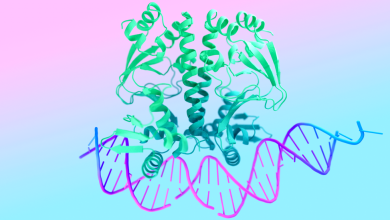Generative A.I. Arrives in the Gene Editing World of CRISPR

Generative A.I. technologies can write poetry and computer programs or create images of teddy bears and videos of cartoon characters that look like something from a Hollywood movie.
Now, new A.I. technology is generating blueprints for microscopic biological mechanisms that can edit your DNA, pointing to a future when scientists can battle illness and diseases with even greater precision and speed than they can today.
Described in a research paper published on Monday by a Berkeley, Calif., startup called Profluent, the technology is based on the same methods that drive ChatGPT, the online chatbot that launched the A.I. boom after its release in 2022. The company is expected to present the paper next month at the annual meeting of the American Society of Gene and Cell Therapy.
Much as ChatGPT learns to generate language by analyzing Wikipedia articles, books and chat logs, Profluent’s technology creates new gene editors after analyzing enormous amounts of biological data, including microscopic mechanisms that scientists already use to edit human DNA.
These gene editors are based on Nobel Prize-winning methods involving biological mechanisms called CRISPR. Technology based on CRISPR is already changing how scientists study and fight illness and disease, providing a way of altering genes that cause hereditary conditions, such as sickle cell anemia and blindness.

Credit…Rachel Bujalski for The New York Times




